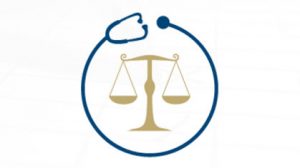Living longer has meant living long enough to lose cognitive function. Two of every three Alzheimer’s patients are women and the fact that women generally live longer does not account for all of the increased risk. While dying from heart disease is a greater risk for women than dementia, we fear losing control of our lives more.
Not all dementia is due to Alzheimer’s disease. Parkinson’s Disease, Fronto-temporal, Trauma and Vascular disease are a few other causes. Often dementia is due to a mix of both Alzheimer’s and another issue such as vascular disease.
So what can you do to reduce your chances of losing cognitive function and developing dementia.
Get 6-8 hours of natural restful sleep. Avoid sleeping pills and nighttime cold and other over the counter “sleep” remedies. Sleep is an important part of staying cognitively functional. Not only does your brain get “washed” of the chemical breakdown products of brain chemicals, sleep is when memories are stored.
Eat well. The Mediterranean diet has been shown to provide cardiac and other health benefits.
Exercise. Regular exercise such as walking has been shown to help prevent depression and promotes cardiovascular and brain health.
Control your blood pressure and maintain a healthy weight to avoid Type 2 (non-insulin requiring) diabetes.
Minimize stress and maximize social and other activities.
Learn new things and challenge your brain.
While a new drug was just approved to treat dementia, the best approach is to minimize your chances of developing dementia.
 Significant differences in the approaches evidenced by the elder law, trust and estate, and other attorneys serve to demonstrate that Living wills, Health Care Surrogate/Proxy designation, and the current legal approach to end of life planning is not only inadequate, it is sometimes inappropriate.
Significant differences in the approaches evidenced by the elder law, trust and estate, and other attorneys serve to demonstrate that Living wills, Health Care Surrogate/Proxy designation, and the current legal approach to end of life planning is not only inadequate, it is sometimes inappropriate. Recently, the media has been reporting on a new phenomenon spreading across the U. S. – Death Cafes. Flyers inform us about the opportunity to enjoy great coffee or tea while engaging in conversations about our mortality. Trying to get people to think about their mortality or at least the need to think about thinking about their mortality is difficult.
Recently, the media has been reporting on a new phenomenon spreading across the U. S. – Death Cafes. Flyers inform us about the opportunity to enjoy great coffee or tea while engaging in conversations about our mortality. Trying to get people to think about their mortality or at least the need to think about thinking about their mortality is difficult. Americans are reluctant to spend much time contemplating their death. Strange, because death is the ultimate destination on life’s journey. Most of us spend a lot of time planning our vacations, but few of us put a personalized plan in-place for what we want when we become unable to make medical decisions for ourselves. Given that it is less and less likely that our personal physician will be at the hospital at the time we face life-threatening conditions, medical professionals who are strangers to us will be in-charge of our care.
Americans are reluctant to spend much time contemplating their death. Strange, because death is the ultimate destination on life’s journey. Most of us spend a lot of time planning our vacations, but few of us put a personalized plan in-place for what we want when we become unable to make medical decisions for ourselves. Given that it is less and less likely that our personal physician will be at the hospital at the time we face life-threatening conditions, medical professionals who are strangers to us will be in-charge of our care. The recent arrest of an elderly man for having sex in a nursing home with his wife highlights the importance of advanced medical planning. In this case, the wife had been diagnosed with dementia, but even people who have lost the ability to handle their finances and make medical decisions, may still be able to consent to intimacy. It is not clear from the media reports whether or not this 78 year old man is cognitively intact.
The recent arrest of an elderly man for having sex in a nursing home with his wife highlights the importance of advanced medical planning. In this case, the wife had been diagnosed with dementia, but even people who have lost the ability to handle their finances and make medical decisions, may still be able to consent to intimacy. It is not clear from the media reports whether or not this 78 year old man is cognitively intact. Research about the effects of diet on our bodies continues to show that as Euell Gibbons famously said; “you are what you eat”. Like many of you reading this post, I am concerned about living well until the very end of my life. I have become convinced that diet and exercise are the “holy grail” of living well and continuing to think well as I age.
Research about the effects of diet on our bodies continues to show that as Euell Gibbons famously said; “you are what you eat”. Like many of you reading this post, I am concerned about living well until the very end of my life. I have become convinced that diet and exercise are the “holy grail” of living well and continuing to think well as I age. As the population ages, concerns about dementia and Alzheimer’s disease continue to rise. While there is no cure for Dementia and Alzheimer’s Disease, there is evidence that lifestyle choices play a role. After age and genetics (Family history), the seven key risk factors appear to be diabetes, high blood pressure, obesity, lack of physical exercise, smoking, depression, and low education. The good news is that these issues are something that we can do something about!
As the population ages, concerns about dementia and Alzheimer’s disease continue to rise. While there is no cure for Dementia and Alzheimer’s Disease, there is evidence that lifestyle choices play a role. After age and genetics (Family history), the seven key risk factors appear to be diabetes, high blood pressure, obesity, lack of physical exercise, smoking, depression, and low education. The good news is that these issues are something that we can do something about! Once again patients are being notified of another data breach at a hospital and medical center where personal information, including social security numbers were accessed. Physicians Regional/Collier HMA Physician Management, LLC now affiliated with Community Health Systems Professional Services Corporations are among those entities where patient data was taken.
Once again patients are being notified of another data breach at a hospital and medical center where personal information, including social security numbers were accessed. Physicians Regional/Collier HMA Physician Management, LLC now affiliated with Community Health Systems Professional Services Corporations are among those entities where patient data was taken. Is there such a thing as too much exercise? Almost everyone knows that exercise brings many health benefits; longevity, positive impact on brain functioning, decreased of heart attacks and strokes, as well as weight management and increased sense of wellbeing.
Is there such a thing as too much exercise? Almost everyone knows that exercise brings many health benefits; longevity, positive impact on brain functioning, decreased of heart attacks and strokes, as well as weight management and increased sense of wellbeing.